Basic math concepts Worksheets for 6-Year-Olds
8 filtered results
-
From - To
Unlock your child's potential with our engaging Basic Math Concepts Worksheets for 6-Year-Olds from Kids Academy! These worksheets are carefully designed to make learning fun and interactive with colorful, age-appropriate exercises that build foundational math skills. Kids will enjoy practicing number recognition, counting, simple addition and subtraction, patterns, and shapes. Our worksheets foster early math confidence and keep young minds curious through playful and educational activities. Whether for homework help or extra practice, these printables make it easy for children to grasp essential math concepts. Set your child on the path to math success with Kids Academy today!
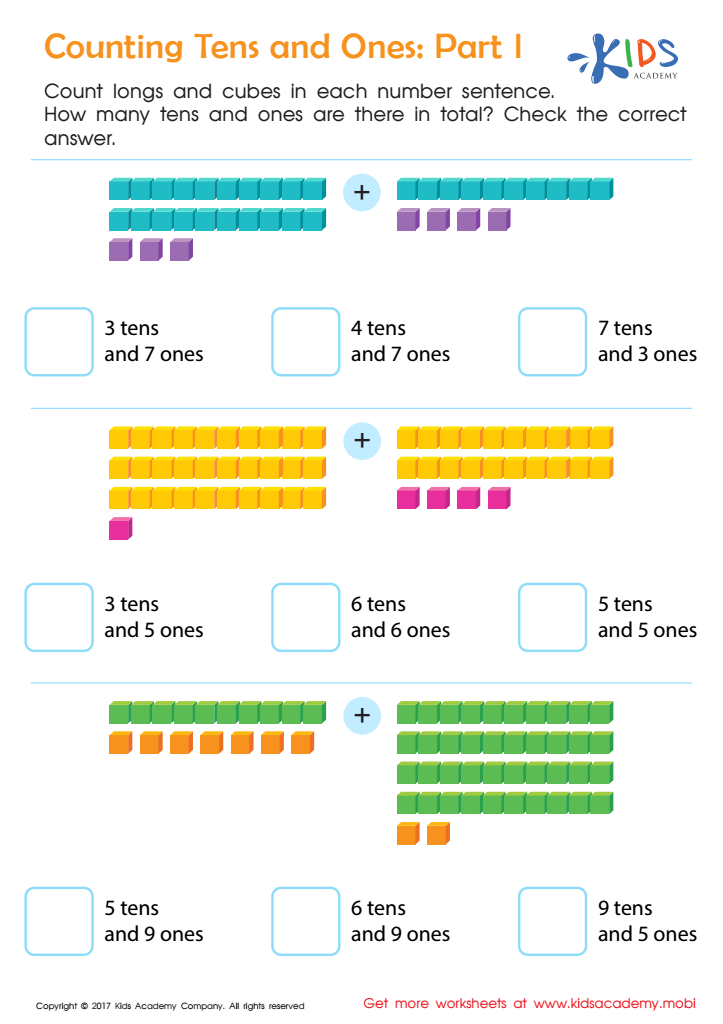

Counting Tens and Ones: Part 1 Worksheet
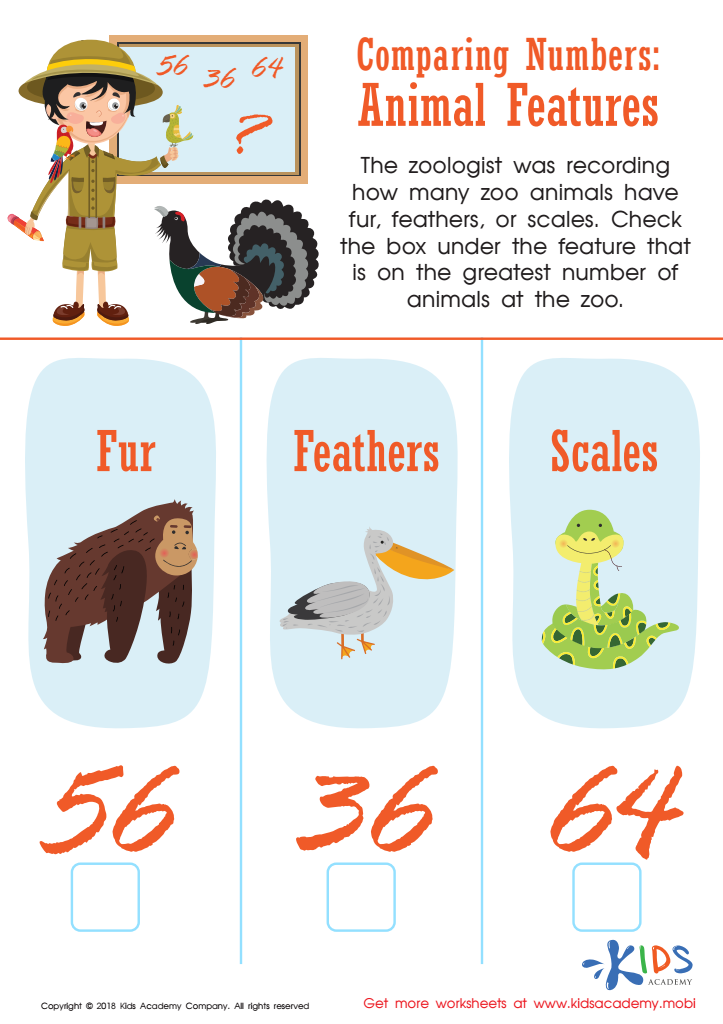

Animal Features Worksheet
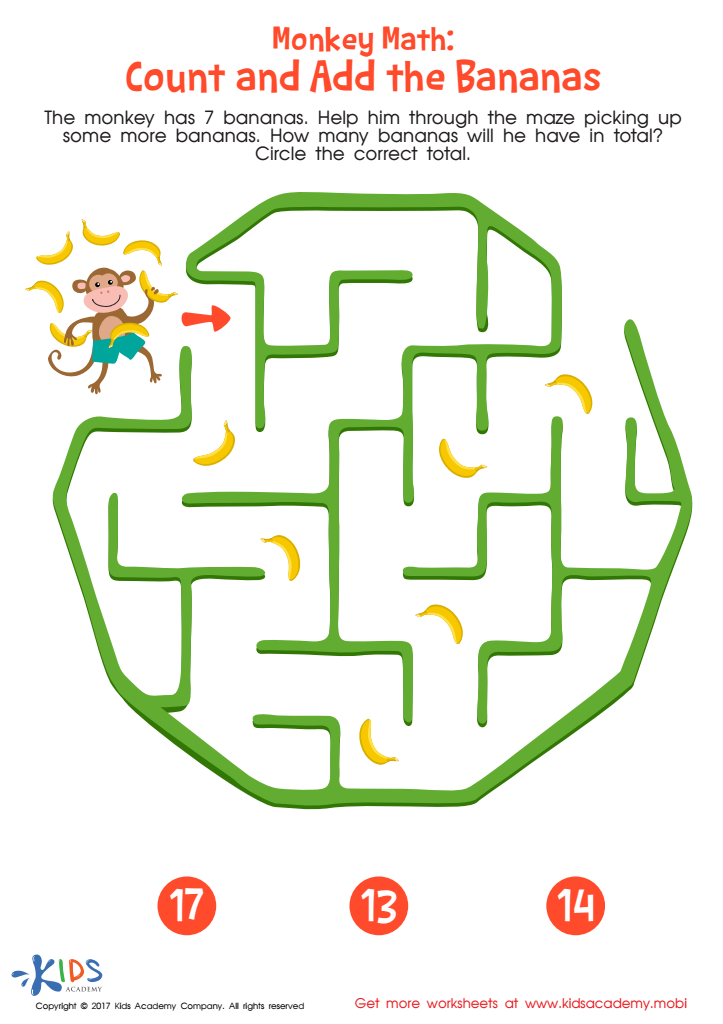

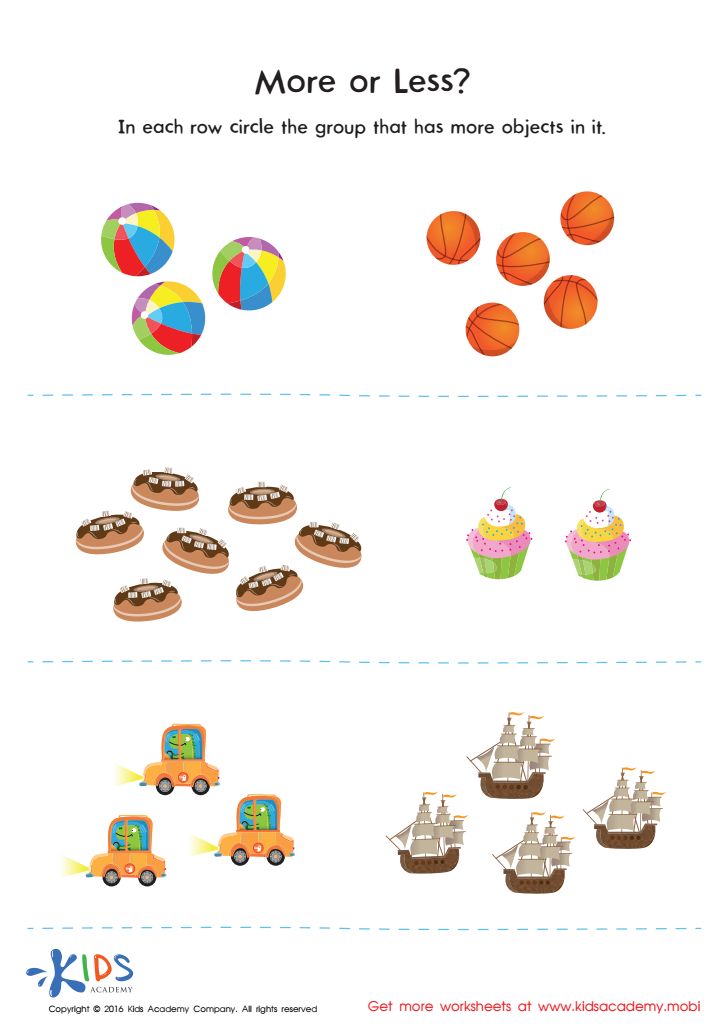

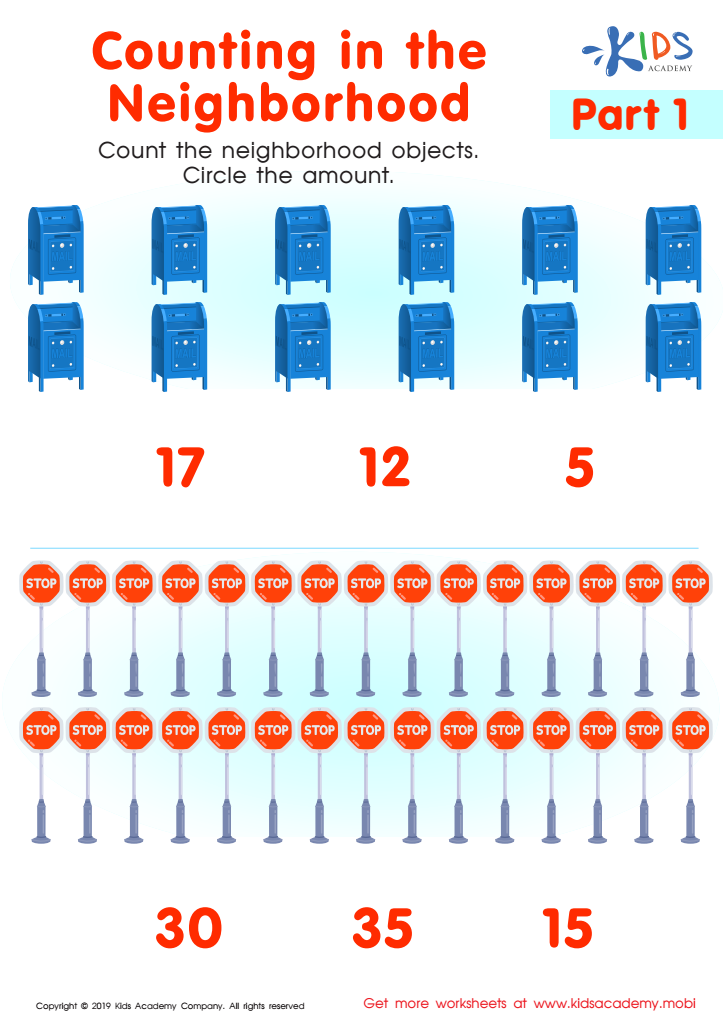

Counting in the Neighborhood Part1 Worksheet
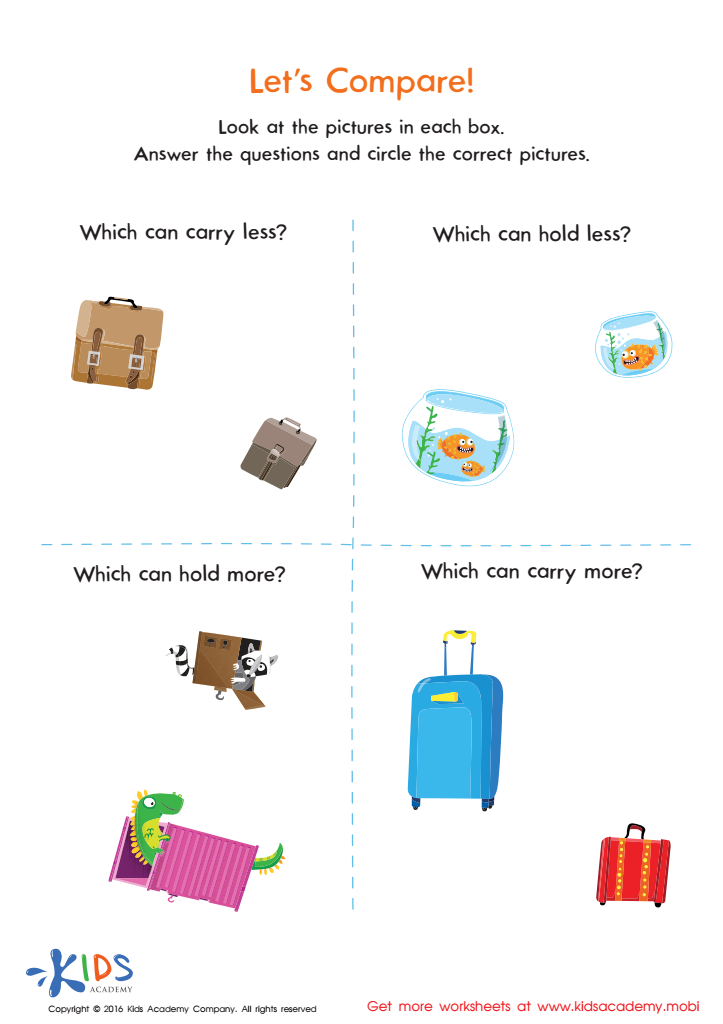

Let's Compare Worksheet: Big or Small
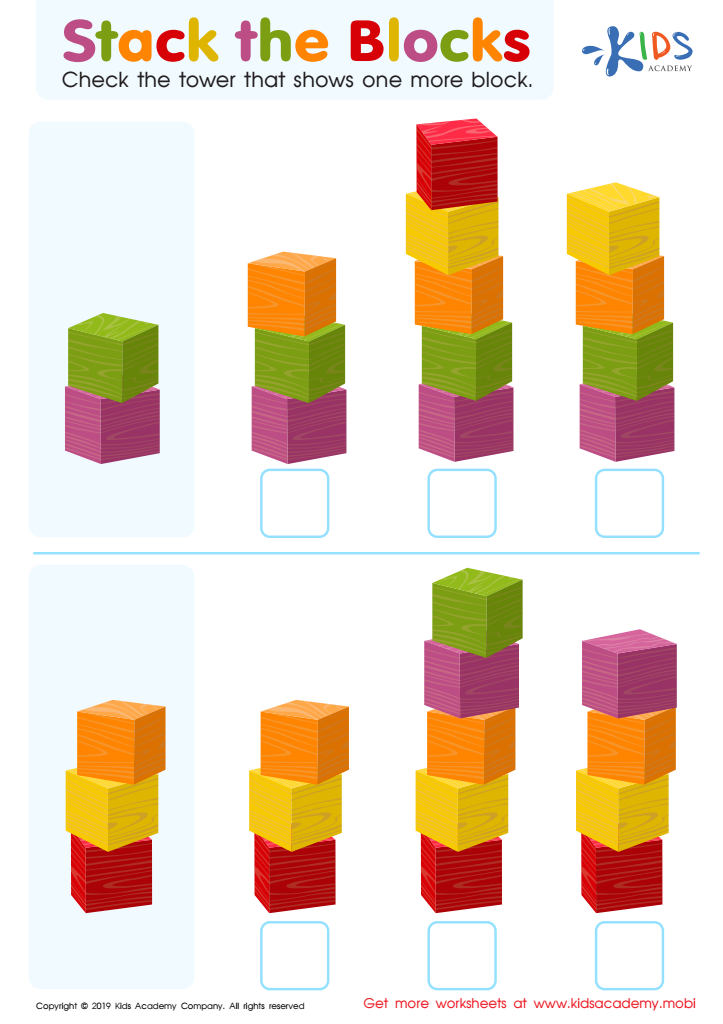

Stack the Blocks Worksheet
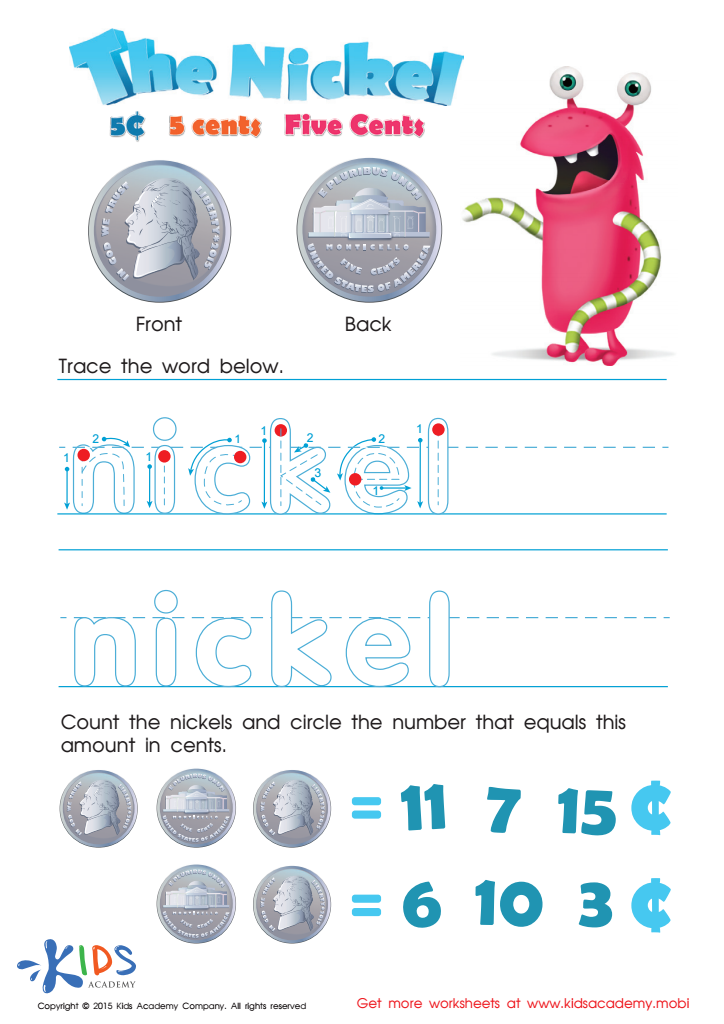

Five Cents or the Nickel Money Worksheet
Parents and teachers should prioritize teaching basic math concepts to 6-year-olds because these early learning experiences lay the groundwork for future academic success and everyday problem-solving skills. At this age, children are naturally curious and capable of absorbing fundamental ideas such as counting, recognizing numbers, basic addition and subtraction, and understanding shapes and patterns. These concepts aren't just about rote learning; they foster critical thinking and the ability to see relationships and patterns in the world around them.
Early mastery of basic math skills boosts a child’s confidence and interest in the subject, helping to mitigate the "math anxiety" that often emerges in later grades. It also enhances cognitive development, including memory, attention, and logical reasoning. Moreover, math skills are integrated into daily activities and decision-making processes, from telling time to sharing toys or dividing snacks, making them vital for practical life skills.
Educational research consistently shows that early mathematical competence is a strong predictor of later academic achievement not only in math but also in literacy, as the analytical skills developed are transferable. By ensuring that 6-year-olds have a solid understanding of basic math, parents and teachers equip them with the tools to succeed in a variety of academic subjects and real-life situations.

 Assign to My Students
Assign to My Students




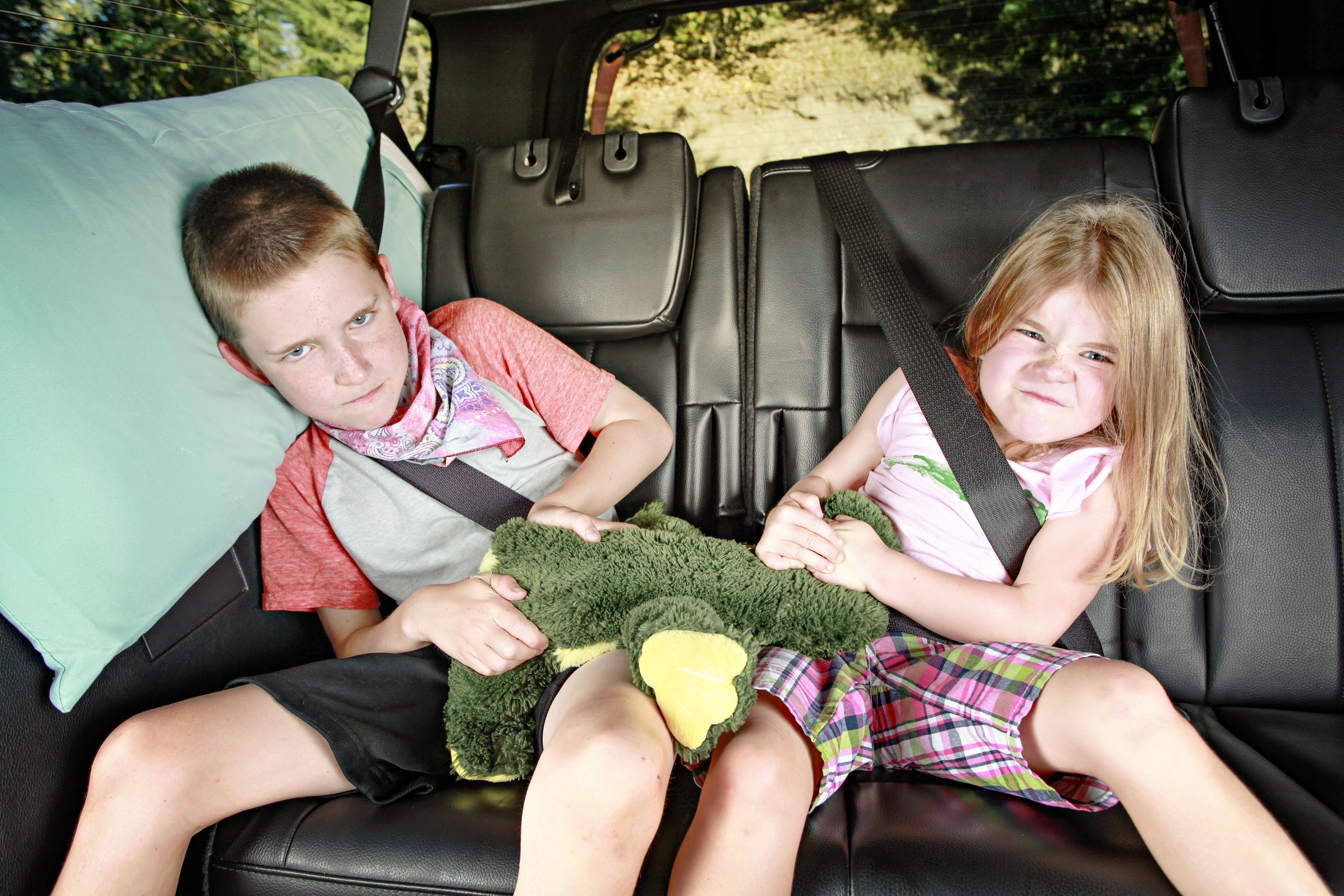

.jpg)








